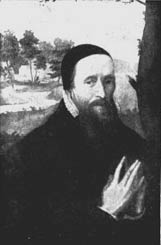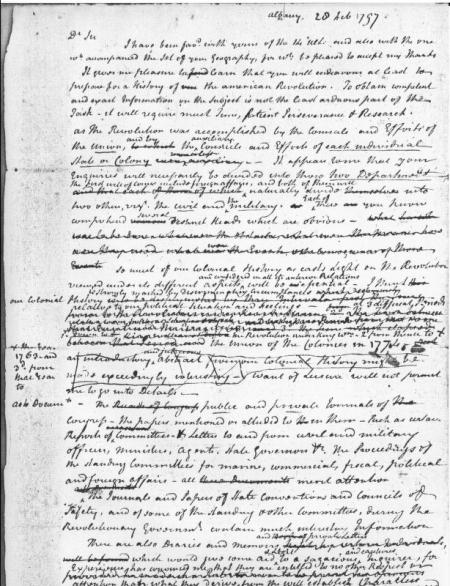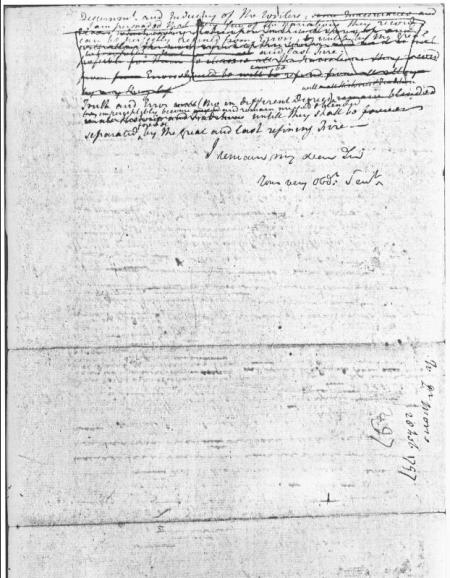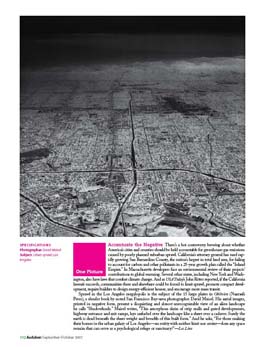Recently I got one of those emails that circulate from time to time decrying the fact that our children don’t get to pray in school. You know the type of email I’m talking about, one that is upset that homosexual, pedophiliac Wiccans are guaranteed free speech but our children can’t pray or learn about Jesus in school.
There are perfectly good reasons, both legal and practical, why there is a wall between Church and State in this country. They arose from our history and the polyglot nature of our society. They must be pretty good reasons too because they have withstood remarkable onslaughts in our history.
It is beyond the scope of this blog or its author’s knowledge to deliver a detailed history of religion in American public life and law. Nonetheless, a few highlights ought to illuminate the debate. And what a debate it has been and continues to be. The last Supreme Court cases on the subject were decided in June, 2005 and resulted in 149 pages of text and nine opinions from the justices. At issue were displays of the Ten Commandments inside Kentucky courthouses and outdoors on the grounds of the Texas capitol grounds. By a 5-4 decision the Court held the Kentucky displays unconstitutional and by a 5-4 decision held the Texas display constitutional. Go figure.
We’ll start with the metaphor of the wall between Chruch and State in this post and then move on to the Founding Fathers and then do a quick survey of the law and politics which have swirled around the issue since the Declaration of Independence down to our own time in later posts in this series.
The metaphor of the wall between church and state originated with an Anglican minister named Richard Hooker.  It was picked up by Roger Williams, James Burgh, and Jefferson; then used in a Supreme Court opinion in1947. Hooker was a remarkable Anglican priest who lived from 1554 until 1600. (Izaak Walton, the same Izaak Walton who wrote The Compleat Angler, was his biographer. Walton was a bait fisherman so is somewhat suspect in the eyes of this fly fisherman but we’ll let that pass.)
It was picked up by Roger Williams, James Burgh, and Jefferson; then used in a Supreme Court opinion in1947. Hooker was a remarkable Anglican priest who lived from 1554 until 1600. (Izaak Walton, the same Izaak Walton who wrote The Compleat Angler, was his biographer. Walton was a bait fisherman so is somewhat suspect in the eyes of this fly fisherman but we’ll let that pass.)
As I said, Hooker was remarkable. In 1585 he delivered a sermon defending Theism – the idea that the way to God is through faith and revealed works. There was nothing unusual about that. What was unusual was that he also said in the sermon that God could and would save those who did not understand or agree with that idea. Christians, he observed, should concentrate on what united them, not what divided them. This caused an uproar in the Calvinistic churches of the time for it meant, among other things, that even Roman Catholics might show up in Heaven. This was too much to swallow and an eruption ensued. The eruption led Hooker to publish his masterpiece, an eight volume work entitled Of the Lawes of Ecclesiastical Politie. In it he noted that there were good monarchies and bad ones, good democracies and bad ones, good church hierarchies and bad ones. What was important was the piousness of Christians. The Bible, he wanted his readers to remember, was written in a specific time under specific historical circumstances and was to be interpreted accordingly. “Words,” he wrote, “must be taken according to the matter whereof they are uttered.” Most importantly for the yet unborn American Republic, he argued for religious tolerance, inclusiveness and reason.
He greatly influenced John Locke who quoted Hooker frequently in his own work. Locke, of course, greatly influenced our own Founding Fathers. Hooker’s belief that the Church and the State ought not be too wrapped up in each other’s affairs is summarized by his metaphor of a wall separating the two. The metaphor was picked up by Jefferson and other American religious thinkers but was not embodied in our organic law until 1947 when Justice Black wrote the opinion of the Supreme Court in the case of Everson v. Board of Education of Ewing Township. We will have much more to say about that opinion but we leave you for now with a quotation from the majority opinion:
The ‘establishment of religion’ clause of the First Amendment means at least this: Neither a state nor the Federal Government can set up a church. Neither can pass laws which aid one religion, aid all religions, or prefer one religion over another. Neither can force nor influence a person to go to or to remain away from church against his will or force him to profess a belief or disbelief in any religion. No person can be punished for entertaining or professing religious beliefs or disbeliefs, for church attendance or non-attendance. No tax in any amount, large or small, can be levied to support any religious activities or institutions, whatever they may be called, or whatever from they may adopt to teach or practice religion. Neither a state nor the Federal Government can, openly or secretly, participate in the affairs of any religious organizations or groups and vice versa. In the words of Jefferson, the clause against establishment of religion by law was intended to erect ‘a wall of separation between Church and State.’
_________________________________
You have to love a man like Richard Hooker who begins an eight volume masterpiece with these words at the beginning of Volume One, Chapter One, “Those unto whom we shall seem tedious are in no wise injured by us, seeing that it lies in their own hands to spare themselves the labor they are unwilling to endure.” Hooker’s sermon can be found here. To get to the sermon you have to Click on “CHRISTIA Library by Author,” then click on James Kiefer,” then scroll
down to “Hooker’s Polity.” You will get to four items to click on, which will give you the complete text of the Preface to THE LAWS OF ECCLESIASTICAL POLITY, and (in three parts) White’s abridgement of the remainder of the LAWS. Scroll down further, past “Hooker’s Polity,” and you will come to “Works by various Authors, submitted by James Kiefer.” The last item in the list under this heading is Hooker’s A LEARNED DISCOURSE OF JUSTIFICATION, described on the screen as “Justification (and Invincible Ignorance) by Richard Hooker.Click on this and there is Hooker’s famous sermon. There will be a test.







